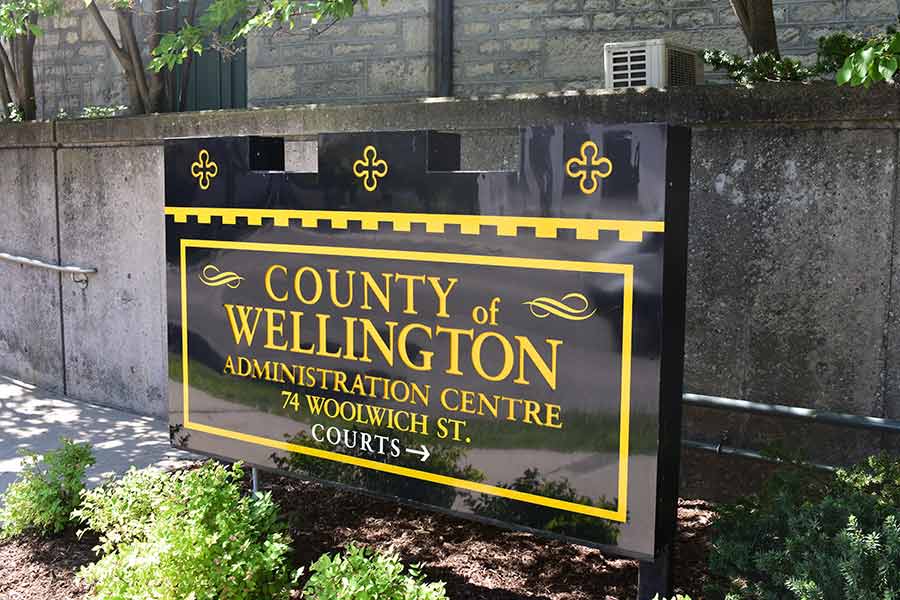WELLINGTON COUNTY – Council got a high-level look at the latest iteration of a proposed 2023 budget during a special council meeting on Jan. 9, updated following adjustments made since November.
The tax levy has increased, largely due to inflationary adjustments, by $77,200 to an estimated $120.49 million – although the tax impact remains at 3.8 per cent for 2023.
To pay for operations, at an overall budget of $277.9 million, the tax levy increase could be as high as 6.2%. However, assessment growth of 2.26% brings the forecasted levy impact to 3.8%.
Changes since November include a reduction in provincial infrastructure funding of half-a-million dollars.
The loss is offset slightly by a $100,000 increase in federal building funding, but overall the roads capital budget is being increased by $400,000 to make up for reduced provincial funding.
“Regrading and adjustments” for county job positions, including practical nurses at the Wellington Terrace Long-Term Care Home, have a $200,000 impact, and a paramedic shift added during the pandemic has been made permanent, resulting in a $122,000 impact to the county for the position in the first year (the actual cost of the shift is $245,000, however, the county’s Shared Services Stabilization Reserve is being used to pay for half of the true cost).
There are budget reductions or offsets of:
- $400,000 for rural broadband implementation removal;
- $250,000 (estimate) in increased revenue from the sale of roads equipment;
- $57,000 (estimate) in revenue from tipping fees and tree sales; and
- $47,000 (estimate) from lowered property assessments.
The budget presentation comes as double-digit inflationary increases (17%) are being seen in construction costs and services.
Council discussed inflation, increasing reserve balances and the taxation levels necessary to keep them funded.
As of the end of 2022, reserve balances totaled $119 million. There is also an expected 2022 surplus ranging between $1.6 and $2.5 million that has yet to be allocated.
However, reserves are expected to drop by $18.7 million this year.
Over the next decade, capital expenditures (funded over several years) could total $554.7 million, with roads accounting for 63% of that cost.
In December, councillors Mary Lloyd, Steve O’Niell and Campbell Cork advocated for limiting the county tax increase to 2%, but spending will have to be reduced to lower the rate.
This year a single per cent tax increase or decrease represents $1.16 million.
“Everybody, if possible, likes to bring the [tax] rate down,” finance committee chair Chris White said. “Somebody has to find that savings … what project are you going to eliminate, what service are you going to remove?”
There was also discussion about using a forecasted surplus from the 2022 budget to tackle a rate increase this year, but that would mean surplus dollars aren’t allocated to reserves needed to pay for capital projects years down the road.
“I haven’t heard of any major changes (to the budget) or anything that’s coming through,” White said. But he cautioned, “stuff always shows up, you never know.”
Monday’s meeting provided councillors with an overview of the county’s financial position to inform decisions to be made now at the committee level.
“If there’s something different about this budget than previous budgets, specifically recently, it is the inflation piece,” White said.
Individual committees and boards will review their respective budgets this month with a review of committee feedback or changes at the Administration, Finance and Human Resources committee on Jan. 17.
Recommendations from that committee will form what council considers at its Jan. 26 meeting, when the 2023 budget could be passed.




